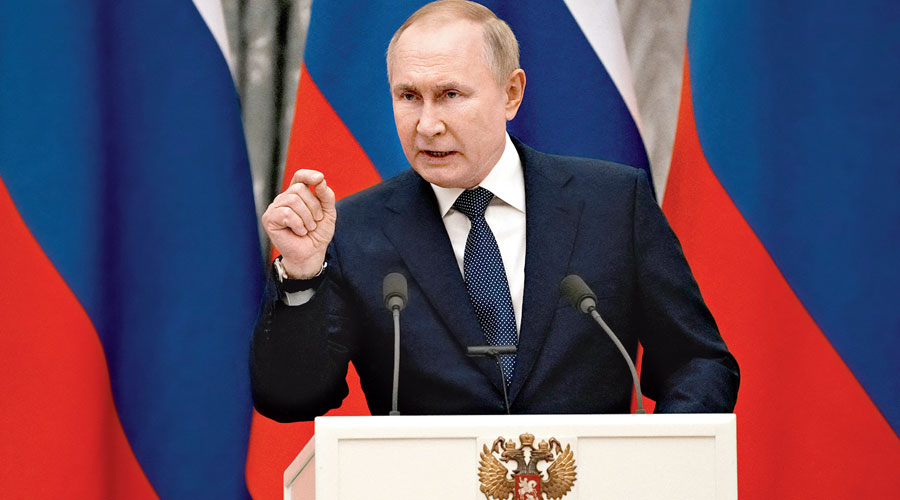As envoys made progress in peace talks on Tuesday, Russia offered concessions that signalled a more realistic course for the war in Ukraine, while indicating it is also in no hurry to end the conflict, according to diplomats and analysts.
Russia’s deputy defence minister, Aleksandr Fomin, presented the decision to “sharply reduce” military activity around the Ukrainian capital, Kyiv, and the northern city of Chernihiv as a gesture “to increase mutual trust for future negotiations”.
But the Russian advance in the north had already stalled, with troops around Kyiv taking up defensive positions in the face of Ukrainian counterattacks, both there and near Sumy, where Russia has been having trouble encircling the main Ukrainian army east of the Dnieper river.
“De-escalation is a euphemism for retreat,” said Lawrence Freedman, emeritus professor of War Studies at King’s College London. “Russia is adjusting its goals to reality, because war is quite empirical,” he said. “It’s not a ruse to say that they are concentrating on the Donbas, because in reality that’s all they can do.”
But retreat is hardly surrender, and others cautioned that the progress made on Tuesday doesn’t mean that Russia is ready for serious discussions on ending the war. That would require a better outcome for President Vladimir V. Putin of Russia to sell at home as a victory.
On Tuesday, the Ukrainians outlined a 15-year process of negotiations about the status of Crimea, and said that control of the Donbas Region could be discussed in meetings between Putin and President Volodymyr Zelensky of Ukraine. Russia has said it would only set a meeting between the two Presidents once a draft peace agreement was ready.
Some analysts say such an agreement would, at minimum, have to give Russia control of Mariupol, the besieged port city in Ukraine that is still somehow holding out, to create a secure land route between two areas that Russia occupies: Crimea to the west, and the Donbas to the east.
And it would also, they say, have to cede control over the two regions in the Donbas, Luhansk and Donetsk, which Putin has already declared to be independent republics.
“Russia is in no place to negotiate seriously because they have to do better in the war,” said François Heisbourg, a French defence analyst with the Foundation for Strategic Research. “This is a chance for the Russians to consolidate, to regroup, to remove themselves from places out of reach logistically, where they have already run out of food and ammunition.”
Some senior western officials agreed, saying that the Russians were badly short of artillery shells and other ammunition and needed to resupply. Nor will Putin easily end the war, Heisbourg said. If he takes the area east of the Dnieper, “that may be enough for now, but he will rebuild his army and continue”.
For both sides, said Robin Niblett, the director of Chatham House, the London research institution, “the negotiations are not serious, in the sense that negotiations now for both sides are a continuation of the war, not a solution”. Russia can concentrate on the east, and Ukraine will find it hard to move from its agile defence to serious counterattacks, he said. “And Putin hasn’t forgotten about Kyiv.”
Even if Putin can control and “settle” for another partition of Ukraine in the east, “Ukraine has to sign up for it, and if not, I don’t think we lift the sanctions,” Niblett said.
His colleague, Mathieu Boulègue, a French scholar who studies the Russian military, agrees that Russia is not negotiating in good faith, but “testing the waters and applying for time, to regroup and re-equip militarily and make more gains on the ground”.
The Russian military appears to have taken control of what might be called Phase 2 of a botched operation, he said, which should have been Phase 1. Taking Mariupol, the land bridge and the Donbas “would have been the grown-up military plan”.
(New York Times News Service)











